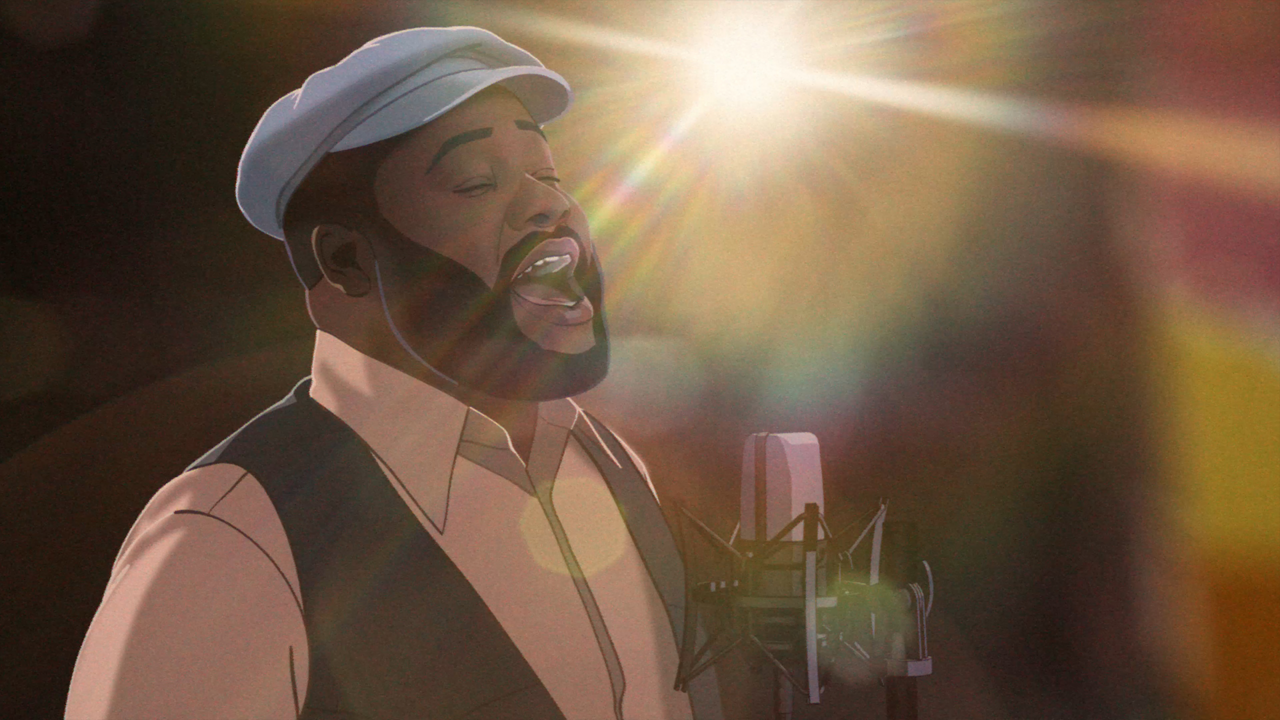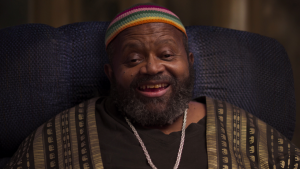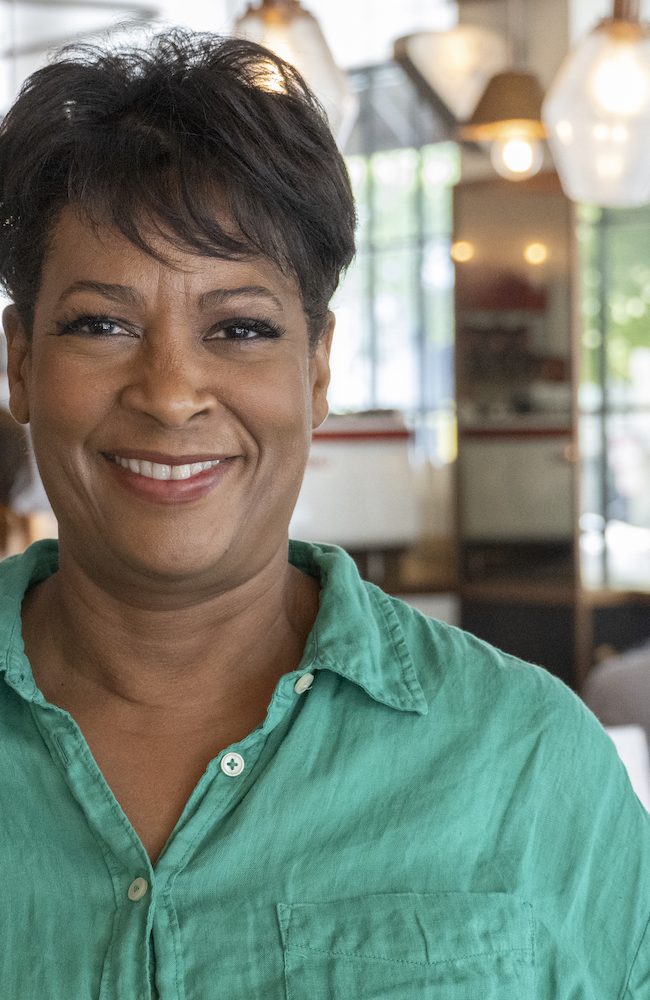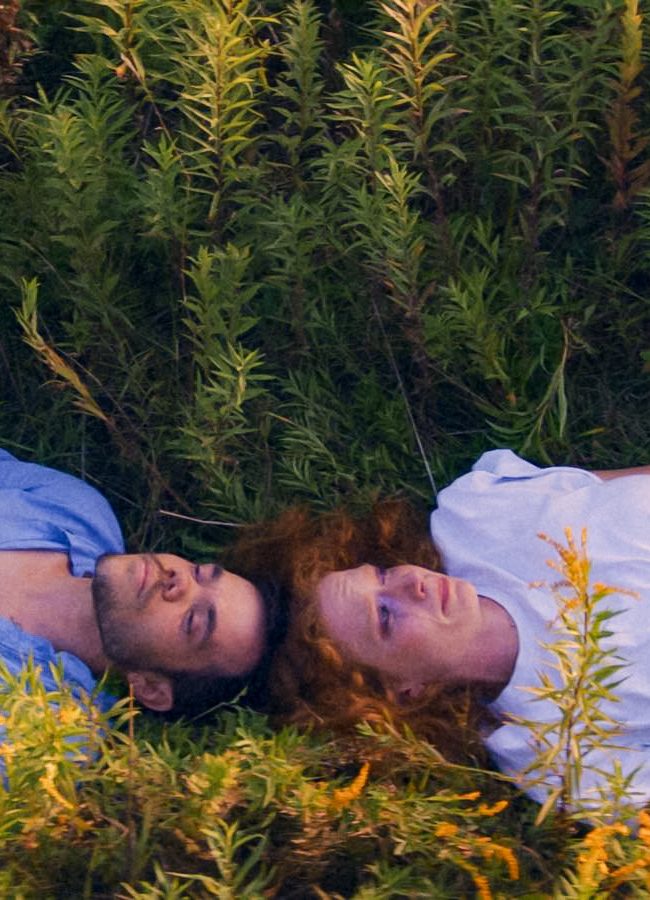A Conversation with Sam Pollard, Daniel Junge & Wellington Love (I WAS BORN THIS WAY)

With it’s Tribeca debut serendipitously falling within Pride Month, the documentary I Was Born this Way is a beaming celebration of identity – in all shapes, sizes, colors, forms, and fonts. The film, an exploration into the life of the late musician, activist, and minister Carl Bean, is a joyously crafted time capsule into the fight for racial equality, gay rights, and AIDS awareness.
The documentary traverses generations, relaying Bean’s credo of unconditional love and unyielding pride into today’s climate. Although Bean passed in 2021, testimonies from Questlove, Lady Gaga, and Billy Porter demonstrate how necessary he was and is to the culture of music, activism, and gay rights, although his name may have been lost to history.
The film is both a beacon upon his voice and message, and a tragic gut punch to those that found him too late. But, as directors Daniel Junge and Sam Pollard, as well as producer Wellington Love, demonstrate, Bean’s legacy is one that continues in the lives, songs, and stories of those he’s touched.
The film premiered on June 5 at the Tribeca Film Festival. Continuing with its Pride Month rollout, I Was Born this Way will also be shown at DC/Dox Film Festival on June 13, Frameline Film Festival on June 19, and Sheffield DocFest on June 22.
Hammer to Nail: I had never heard of Carl Bean before watching this film, which was such a shame because he truly is such an amazing figure. How did you all learn of Carl Bean?
Daniel Junge: I was researching a series on protest music and the intersection of music and social action. The series was going to be divided thematically, and there was going to be an episode on sex, so I knew Lady Gaga’s “Born this Way” would be the anchor story to that episode. And in the process of researching that, I found Carl’s story. Like so many series, it didn’t happen, but Carl’s story stuck in my craw. And then I realized that his church and his home were within about five miles of me in Los Angeles. So once we had an interview in the can, I knew there was a film. But whenever I make films outside of my community – I’m a straight, white, cis man – I know that I needed collaborators who are more representative of the subject matter. Sam [Pollard] was a mentor of mine and was a story editor on an earlier film of mine, and Wellington [Love] was referred to me through another friend, and they were the perfect collaborators.
Wellington Love: I was sent a rough assembly of the interview with Carl Bean walking us through his life, and immediately I was blown away. Carl is this magnificent, magnetic, charismatic man who really pulls you in. But, although having come of age during the height of the AIDS crisis and being a teenager when this song came out, I didn’t know very much, if anything, about Carl at all. And so from the first moment I saw the interview, I was like, how can I help? What can I do? Tell me what you need. It went from raising a little bit of money to being very involved in the overall production. This was a passion project, I can say that for myself, and one that I am happy and proud to be attached to. Hopefully it brings Carl’s story to other people who don’t know about him and his message because, my God, we certainly need more stories about humanitarians who are compassionate and loving and care about their fellow human being?
Sam Pollard: I’ve known Daniel for quite a while, and know that he is a very talented filmmaker, so he reached out to me, and sent me the uncut interview of Carl Bean. I listened to it and watched it, but this was somebody I never knew about. Growing up in the 60s and the 70s, listening to a lot of Motown, somehow the song missed me. As a documentary filmmaker who likes to tell stories about people who’ve never been heard or told about, this was absolutely in my wheelhouse. I love making films about musicians and artists, I love making films about unique people, and Carl Bean was all of that.
HtN: How long did it take to make this film?
SP: With every documentary, there’s ups and downs, and you gotta always say that the ups and downs should not stop you from pushing forward. And that was the attitude over the six years, pushing forward, that we got this film done. The biggest challenge is always raising money, but you have to be tenacious. Wellington was tenacious, Daniel was tenacious. These guys really put the pedal to the metal to get this film finished and completed.
DJ: Sam’s “tenacious” is a euphemism for “pain in the ass.” And that’s what I was. But, looking back on it, there was a benefit to this thing taking so long to make, the pieces that came together, they all happened through persistence and happenstance. Getting Questlove, Billy Porter, Gaga, getting some of the funding, it wouldn’t have happened if somebody had given us a certain amount of money early on to get the film made. So in some ways, the curse became the blessing. I’m not religious, but I have sort of a feeling that somewhere Carl is looking down on us and smiling on us, because things happened on the film that you can only describe as miraculous.

Carl Bean in I WAS BORN THIS WAY
HtN: The film uses rotoscope animation, a technique I rarely see used in documentaries. It was such a smart choice, though, since rotoscope, much like the documentary medium, is a form of recreation and retelling that is centered upon reality. What was the inception of this idea?
DJ: Sam and I have done a lot of historical films, and you always face the same dilemma, which is, if you don’t have archival footage – and the more obscure your story is – then you have to resign yourself to doing recreations. But we’ve all like done the close ups of hands and close ups of glasses, and your actors are invariably not going to look exactly like your historical figure, so there’s a disconnect. So this was a way to somehow transport people to the story in a way that feels realistic but still allowed us some level of impressionism.
SP: I’ve done lots of documentaries where the usual palette was archival footage and interviews and stills. And I think that what you’ve seen lately in the documentary world, in films like Tower (2016), and now this film, I Was Born this Way, you see the ability to creatively say, I want to break those boundaries, I want to do something different with the filmmaking process. And to me, the rotoscoping was fantastic. It’s another way to to broaden the documentary palette.
HtN: The documentary also takes on an investigative edge with the mystery of Carl Bean’s lost song, “Liberation.” It’s such a fun turn in the film as it takes on this mystery of “where is this hidden track?” “who has the rights?” “why was it lost to time?” What was this treasure hunt like for you?
DJ: When Sam and I made the protracted decision to make this into a feature, it just It gave us more real estate to work with. I knew that the song existed somewhere out there, and in the process of telling Bunny Jones’ story, the origin of the song, “I Was Born This Way,” Chris Jones came into the picture, and turns out, that when asked him, he said, “Yeah, I’ve got the masters in my closet.” So at that point, we had the possibility for a vérité, present day strand to add to this film.
WL: One of the things that we wanted to do with this song was help bring Carl’s message forward to today. And we thought that Billy Porter would be the perfect partner and vehicle to do that, given that he is a Black, gay actor, musical artist, and a Christian who still remains quite faithful. That was the thinking around merging the past version of “Liberation” with the future-forward voice of Billy. It was a much needed message – more than we even knew when we started making the film – about liberation.
HtN: Will Billy Porter’s recording of “Liberation” be released?
WL: Yeah, we’re still working on that.
DJ: The music business is perhaps even more litigious than our business. And for a song with such a hazy origin – it was recorded by Motown in a session for Motown, but ends up owned by Bunny (Jones) owned. It’s just murky, which is makes it interesting and it makes it difficult, legally,
HtN: While watching the film, I was honestly shocked to learn that a prominent record label like Motown Records would be so on board with a song so clearly and joyously about homosexuality in a time when that lifestyle and identity wasn’t completely accepted. Why do you think this was?
SP: In the 70s, Barry Gordy, reluctantly, was opening up the idea that Motown could be more about love songs. But “What’s Going On” came out with Marvin Gaye, and initially, Barry Gordy was completely against that record. He didn’t think it was going to do anything. But here comes this record that speaks about Vietnam and the issues after and it was a huge success. So I think that might have opened the door for the execs to say, let’s try something different, let’s try something new. And that was “I Was Born This Way.” Their ears were opened; they were listening to the to the people in the country.
HtN: Carl was absolutely the right person to hold that role, not just as a musician, but an activist and a preacher. If you could speak with Carl today, what would you like to say?
SP: I would say thank you, Carl Bean, for being on this planet. Thank you for having the foresight and the ability and tenacity to do what you did over so many years with your church. Just, thank you.
WL: Like Sam, I would say, thank you for your service, for all the work that you did. The other thing I would say is, I wish I had known you when I was a a young gay, black kid growing up in Jacksonville, Florida. The third thing I would say is, man, how do you do it. How do you keep going? Where did you find that the strength – the tenacity, as Sam has been talking a lot about – how do you do it?
DJ: I just wish that he was around for this moment. Carl lived a very humble life and he died in a very humble fashion. And we’re going to have this splashy Tribeca premiere, and we hope that this film goes on to be a smashing success, but it’s a shame he’s not here to experience that. I think this film is going to amplify his voice he’s going to reach a lot more people. And I wish like hell he could have experienced that in his lifetime.
– Kaitlyn Hardy











